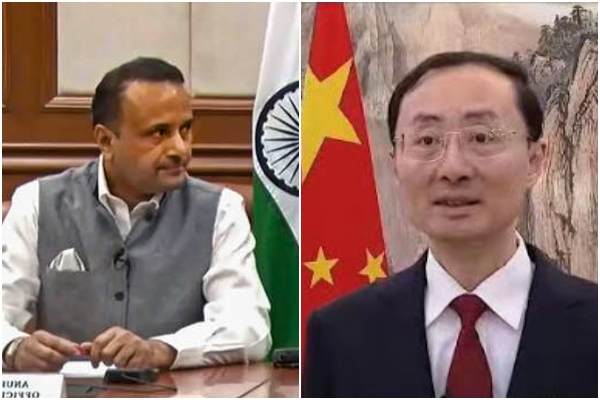China says is not a strategic threat to India; MEA says pullback not over yet!
Total Views |
New Delhi, July 30: India is positioning an additional 35,000 troops along its disputed Himalayan border with China as the possibility of an early resolution to the deadly tensions between the two neighbours fades. The move would change the status quo along the contested 3,488 km Line of Actual Control and stretch the nation’s already tight military budget, senior Indian official noted.

Pushing its country’s claim to Pangong Tso where Chinese troops came in 8 km west of the point which India says marks the Line of Actual Control, Sun Weidong, Beijing’s ambassador to New Delhi, Thursday said “China’s traditional customary boundary line is in accordance with the LAC” on the north bank of the lake. He rejected suggestions that China has expanded its territorial claim at Pangong Tso. The ambassador made these remarks ahead of the fifth round of talks between Corps Commanders of the two armies, expected to take place in the next few days.
The Chinese reluctance to step back from Pangong Tso, where its troops continue to occupy the ridgeline at Finger 4, has stalled the disengagement process and is likely to be the focus of talks between the Corps Commanders. The military standoff began early May after Chinese and Indian troops came to blows on the north bank of the lake. The Chinese ambassador, in his speech, said, “China is not a strategic threat to India”, and cautioned against “forced de-coupling” of the relationship.
Responding to the ambassador’s remarks, New Delhi said there has been some progress but the process of disengagement has not yet been completed. Anurag Srivastava, official spokesperson for the Ministry of External Affairs, said, “There has been some progress made towards this objective, but the disengagement process has as yet not been completed.”
He said senior commanders of the two sides will be meeting in the near future to work out steps in this regard. Maintenance of peace and tranquility in the border areas, Srivastava said, is the basis of the bilateral relationship. “Therefore, we expect that the Chinese side will sincerely work with us for complete disengagement and de-escalation and full restoration of peace and tranquility in the border areas at the earliest as agreed to by the Special Representatives,” he said.